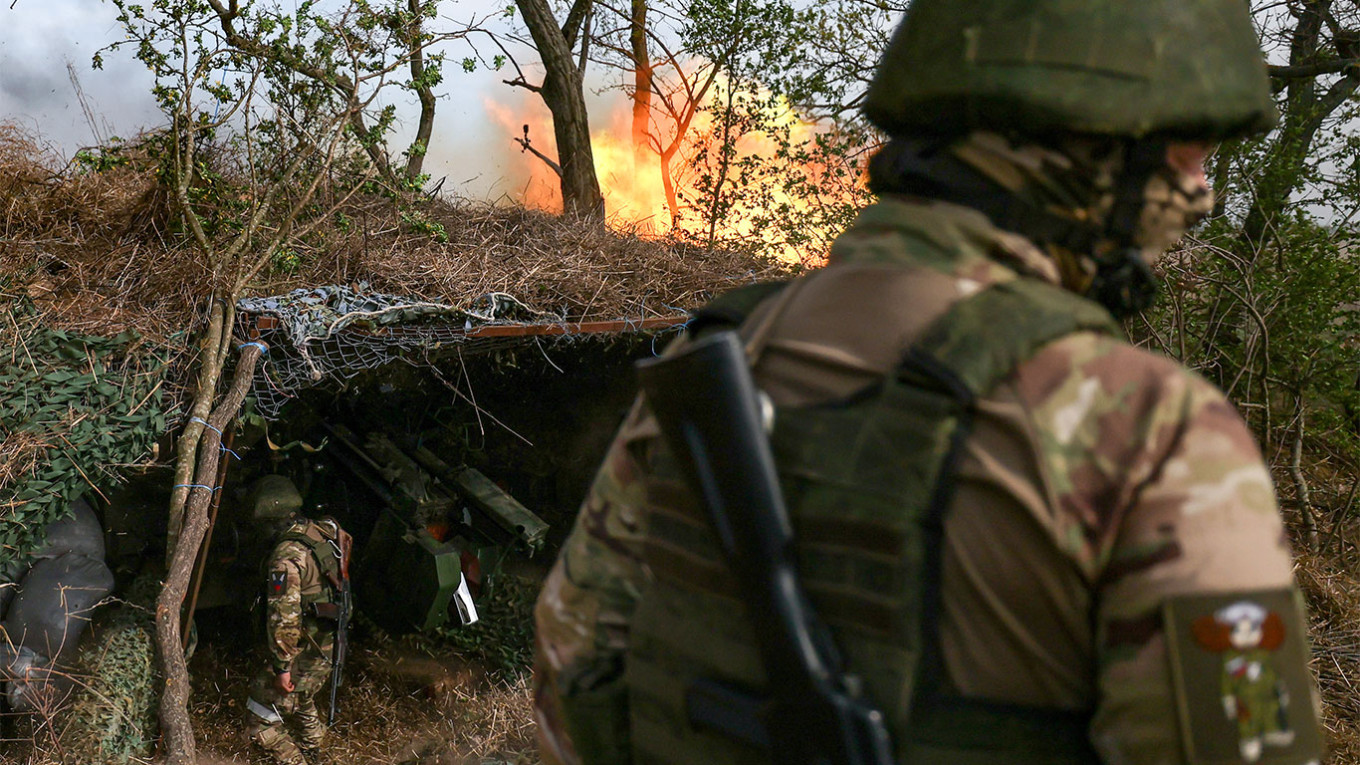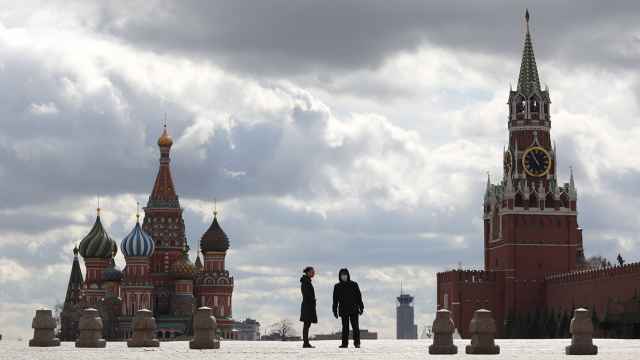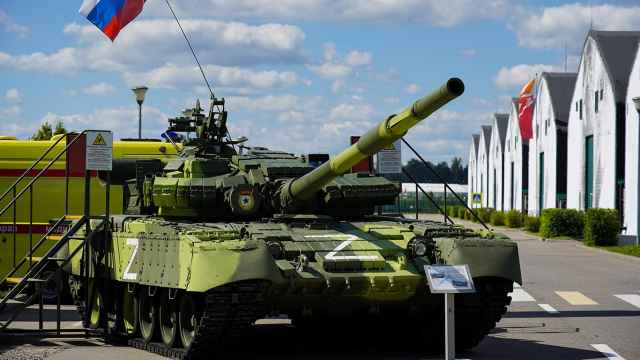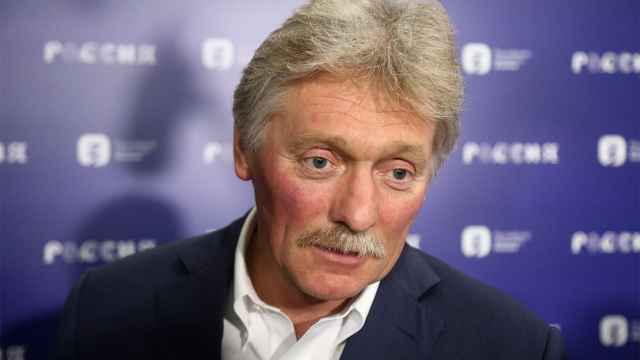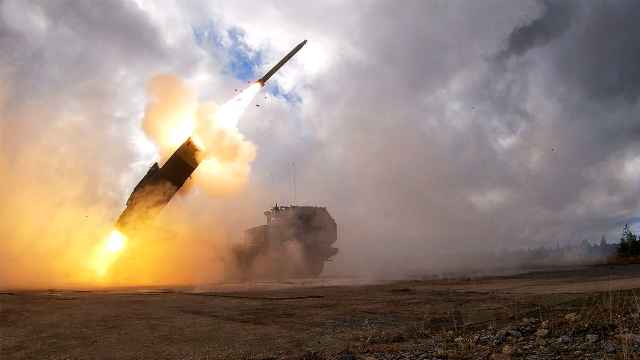Updated with the Kremlin's response.
The U.S. State Department accused Russia Wednesday of having used chemical weapons against Ukrainian soldiers in violation of the Chemical Weapons Convention, while also announcing fresh sanctions against Moscow.
In addition to the chemical agent chloropicrin, Russia also used "riot control agents [tear gas] as a method of warfare in Ukraine, also in violation of the CWC," the department said in a factsheet.
"The use of such chemicals is not an isolated incident, and is probably driven by Russian forces' desire to dislodge Ukrainian forces from fortified positions and achieve tactical gains on the battlefield," the State Department said.
Meanwhile, the U.S. Treasury Department announced sweeping sanctions aimed at crippling Russia's military and industrial capabilities — including targeting nearly 300 entities in Russia, China, and other countries accused of supporting Moscow's invasion.
The sanctions are meant to punish companies that help Russia acquire weapons for its war in Ukraine. They also target Russian government entities and companies involved in the country's chemical and biological weapons programs.
Moscow has said it no longer possesses a military chemical arsenal, but the country faces pressure for more transparency over the alleged use of toxic weapons.
The Kremlin later on Thursday rejected Washington's allegations, calling them "completely baseless and unsubstantiated."
"Russia has been and remains committed to its obligations under international law," Kremlin spokesman Dmitry Peskov told journalists.
According to the U.S. National Institutes of Health, the chemical chloropicrin is used both as a warfare agent and a pesticide. If inhaled, it poses a health risk.
'Sand in the gears'
"Today's actions will further disrupt and degrade Russia's war efforts by going after its military-industrial base and the evasion networks that help supply it," Treasury Secretary Janet Yellen said in a statement.
The accusations and sanctions come a week after U.S. President Joe Biden signed a much-delayed bill to provide new funding for Ukraine as Kyiv's military struggles to hold back Russian advances.
"Even as we're throwing sand in the gears of Russia's war machine, President [Joe] Biden's recently passed National Security Supplemental is providing badly needed military, economic, and humanitarian support to bolster Ukraine's courageous resistance," Yellen said.
"Combined, our support for Ukraine and our relentless targeting of Russia's military capacity is giving Ukraine a critical leg-up on the battlefield."
As part of the measures, the State Department blacklisted additional individuals and companies involved in Moscow's energy, mining, and metals sectors.
The sanctions also targeted individuals connected to the death of Russian opposition leader Alexei Navalny, who died in an Arctic prison in February.
The almost 300 targets sanctioned included dozens of actors accused of enabling Russia to acquire desperately needed technology and equipment from abroad, the Treasury said.
Some of those targeted were based in countries such as China that have faced increasing pressure from Washington over support for Russia during its 15-month invasion of Ukraine.
"This support enables Russia to continue its war against Ukraine and poses a significant threat to international security," the Treasury Department said.
Other than China, targeted non-Russian entities were located in Azerbaijan, Belgium, Slovakia, Turkey, and the United Arab Emirates.
These companies "enable Russia to acquire desperately needed technology and equipment from abroad," the statement said.
A Message from The Moscow Times:
Dear readers,
We are facing unprecedented challenges. Russia's Prosecutor General's Office has designated The Moscow Times as an "undesirable" organization, criminalizing our work and putting our staff at risk of prosecution. This follows our earlier unjust labeling as a "foreign agent."
These actions are direct attempts to silence independent journalism in Russia. The authorities claim our work "discredits the decisions of the Russian leadership." We see things differently: we strive to provide accurate, unbiased reporting on Russia.
We, the journalists of The Moscow Times, refuse to be silenced. But to continue our work, we need your help.
Your support, no matter how small, makes a world of difference. If you can, please support us monthly starting from just $2. It's quick to set up, and every contribution makes a significant impact.
By supporting The Moscow Times, you're defending open, independent journalism in the face of repression. Thank you for standing with us.
Remind me later.


